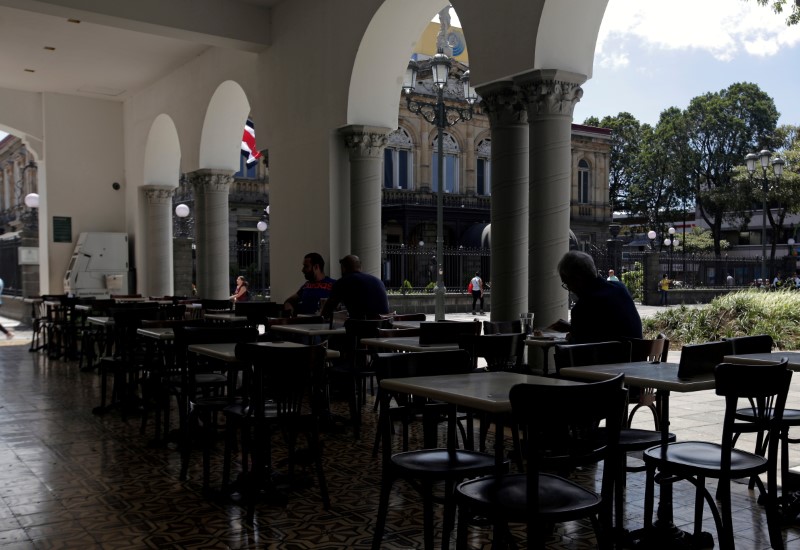By Alvaro Murillo
SAN JOSE (Reuters) - Hoteliers, tour operators and restaurant owners in Costa Rica are bracing for their worst season on record after the Central American country closed its border until mid-April to tackle the coronavirus scourge.
The industry is forecasting drops in reservations of up to 90% this year for the business that has become the driving force of the economy, accounting for over 200,000 jobs, or 10 percent of the formal workforce.
Instead of welcoming thousands of tourists, the country is ridden with empty hotels, with national parks battling to stay open.
"This is the worst season we can remember," said Javier Pacheco, head of the national hotel chamber. "In Costa Rica we have peak season and low season, but this is going to end up being a zero season."
Last year Costa Rica, a country of 5 million people, hosted 3.1 million tourists.
Bosses at hotel and tourism groups said up to nine out of 10 reservations would be canceled in the rest of March and April. If global lockdowns continue, the hit could roll through 2020.
"We've got companies that know they'll have no income in the next two or three months," said Shirley Calvo, executive director of the National Chamber of Tourism.
"In this context, saying 90% of reservations will be lost is almost optimistic; the hit could be even worse."
Activity has all but ground to a halt at San Jose airport. In the city of Liberia in the Pacific northwest, tourists are going in one direction - out.
"I've been working at the airport for 25 years and I never thought I would see it like this. There's a lot of uncertainty and worries about job losses," said Gonzalo Rodriguez, an employee at a car rental company.
To cushion the blow, President Carlos Alvarado has ordered a moratorium on tax payments for three months and proposed a bill to Congress to cut working hours. He has also urged state banks to help with loans, but admits it will not be enough.
Businesses are preparing for the worst.
At the Wyndham Herradura, a 230-room hotel in San Jose, just one client entered on Wednesday morning. The occupancy rate was 5%.

"Every second that passes things are more complicated," said the manager, Ali Mizhgan. "We can hold out two months, but if this covers the whole of 2020, it'll be a death sentence."
